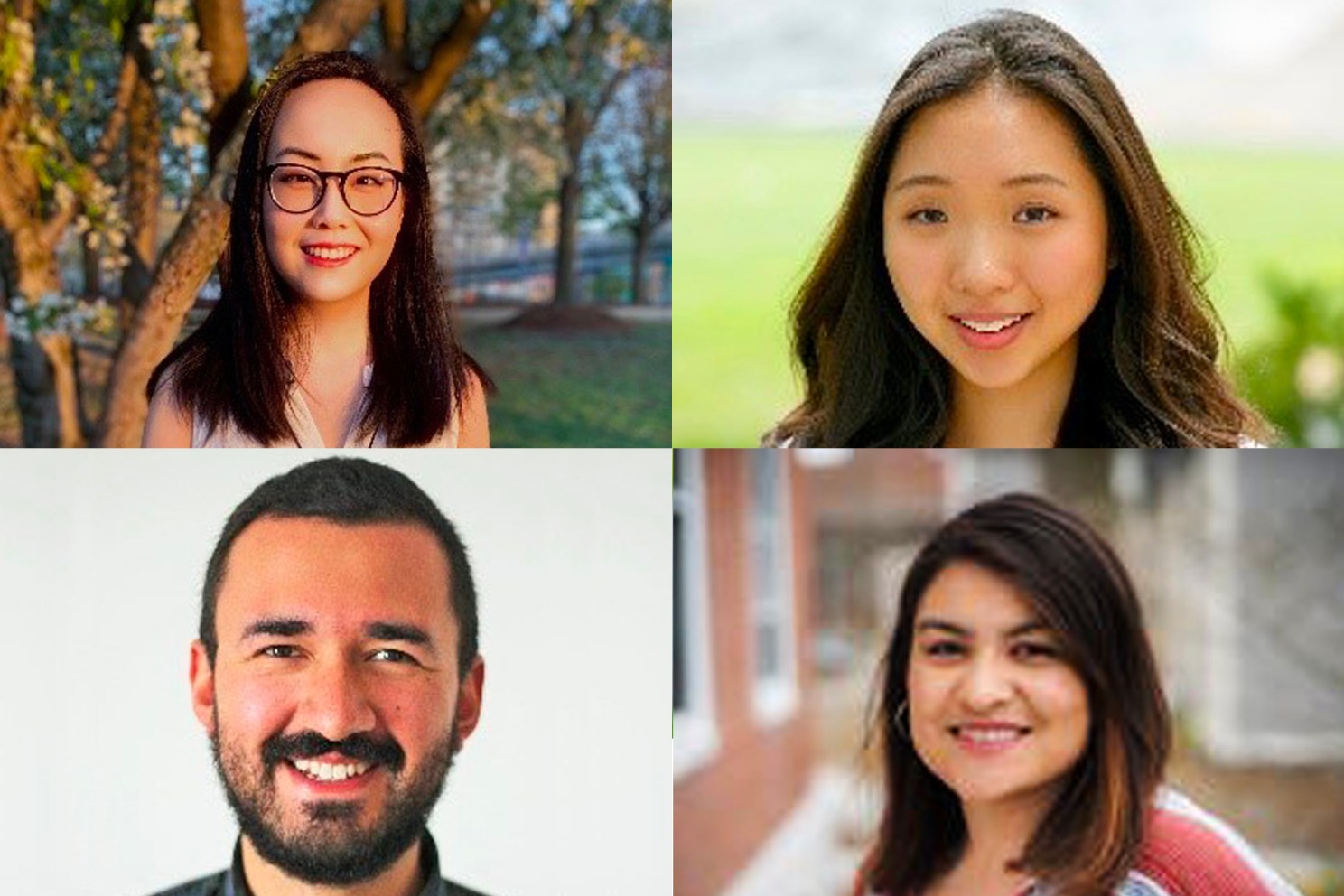Students awarded fellowships by the Center on the Developing Child

The 2020-2021 Science and Innovation Fellows. Photos by: Catalina Rey-Guerra; Tan Pham; Channing Johnson; and Thomas Wang.
The Center on the Developing Child announced on July 15 that four doctoral students have been awarded Science and Innovation Fellowships for 2020-2021.
Each Fellow will receive a grant to support their independent dissertation research. The Fellowship was created with the aim of creating a new generation of leaders who will leverage science for innovation in early childhood policy and practice settings to make research actionable.
The Fellowship program fosters interdisciplinary collaboration and builds each Fellow’s capacity to design, conduct, and translate research into practices and policies that will improve outcomes for children facing adversity.
Jorge Cuartas is a doctoral student in human development, learning, and teaching, a program offered by Harvard Graduate School of Education in collaboration with Graduate School of Arts and Sciences.
His research focuses on disparities in child development and parenting practices in global contexts, and the effects of corporal punishment on children’s neural, cognitive, and socioemotional development.
Cuartas’s research aim is to develop evidence that can inform scalable programs to prevent corporal punishment and promote positive disciplinary approaches in prevention efforts and policy. He is co-founder and co-director of Apapacho, a non-profit organization aimed at fostering positive caregiving and child development in Colombia.
Rosa Guzman Turco is a doctoral student in human development, learning, and teaching, a program offered by HGSE in collaboration with GSAS. Her research interests lie in the intersection between language, literacy, and technology.
Her research aims to understand how technology is shaping children’s literacy and language development in order to help parents and practitioners make better decisions about the use of technological devices, especially in disadvantaged communities.
Turco is a research assistant in the Early Learning Study at Harvard, affiliated with the Saul Zaentz Early Education Initiative, as well as Reach Every Reader.
Michelle Lee is a student at Harvard Medical School. Her research aims to contribute to a fuller understanding of the barriers and strategies in accessing and engaging in early intervention programs and services among families experiencing homelessness.
Her research has the potential to inform best practices and guidance to practitioners and policymakers in designing programs to reach populations who may be in the greatest need of early intervention services.
Christine Junhui Liu is a doctoral student in Speech and Hearing Bioscience and Technology, Division of Medical Sciences, a program at HMS. Her research aims to increase understanding of the neural mechanisms of auditory plasticity. She is driven by the implications of identifying new ways to stimulate brain rewiring for the treatment of neurodevelopmental disorders. She seeks to understand the impact of early sound and language on child brain development and to help children with neurodevelopmental disorders.
Over the past 13 years, this fellowship program has supported 53 emerging scholars whose research is focused on a range of factors that can affect early childhood development, with a view to finding novel solutions to persistent challenges.




